May 19, 2025 | 09:58 GMT +7
May 19, 2025 | 09:58 GMT +7
Hotline: 0913.378.918
May 19, 2025 | 09:58 GMT +7
Hotline: 0913.378.918
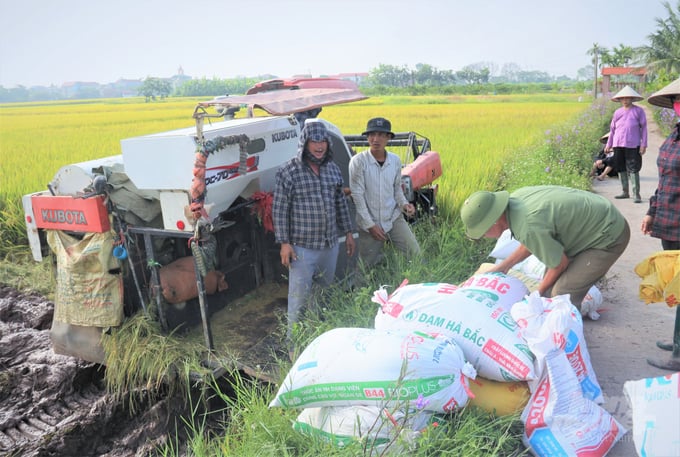
At present, people are having difficulty accessing capital sources. Photo: Pham Hieu.
The greatest challenge for Vietnamese farmers is understanding and meeting market demands. Therefore, farmers must seize chances as soon as the market suggests their signals. A factor that contributes to fostering farmers is the preferential capital policy.
"Our current worry is not the underwriting of output for products, but rather the operating capital required to buy agricultural goods from farmers. We do not yet know which sources to tap," Ms. Nguyen Thi Hong Minh, director of Tan Thanh Cooperative (Bac Kan province), stated at the 7th National Farmer's Forum.
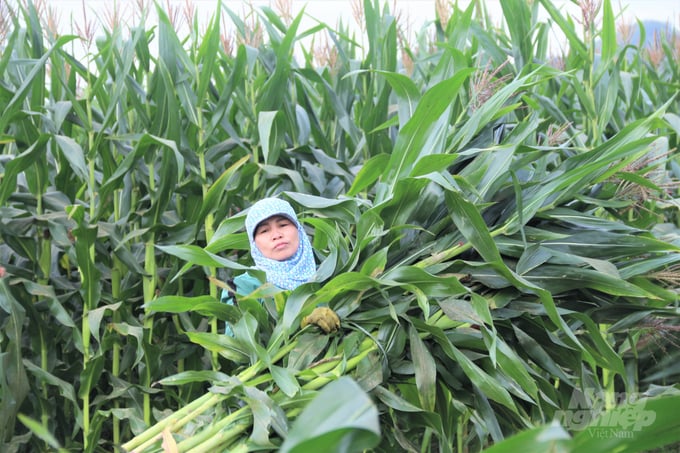
Agriculture and rural regions are one of the State Bank's top priorities, and it has several procedures and regulations in place to increase lending. Photo: Pham Hieu.
In response to the farmers' concerns, Mr. Nguyen Xuan Bac, Deputy Director General of the SBV Department of Credit for Economic Sectors, stressed the importance of the development of the agriculture and rural areas. As a result, these two sectors receive advantageous credit mechanisms and policies and are regarded as a priority.
First, the State Bank of Vietnam encouraged the government to promulgate Decree 55/2015/N-CP and Decree 116/2018/N-CP on the credit policy servicing agricultural and rural development. This is a pillar policy with specific policies and mechanisms to boost agriculture and rural areas.
Second, the SBV imposes a lower-than-usual interest rate limit on short-term loans priced in Vietnam dong for priority rural areas.
Thirdly, the banking sector has implemented a variety of credit programs, including loans to decrease agricultural losses, loans to support the development of high-tech agriculture and clean technology, and loans to developing agricultural output in poor regions.
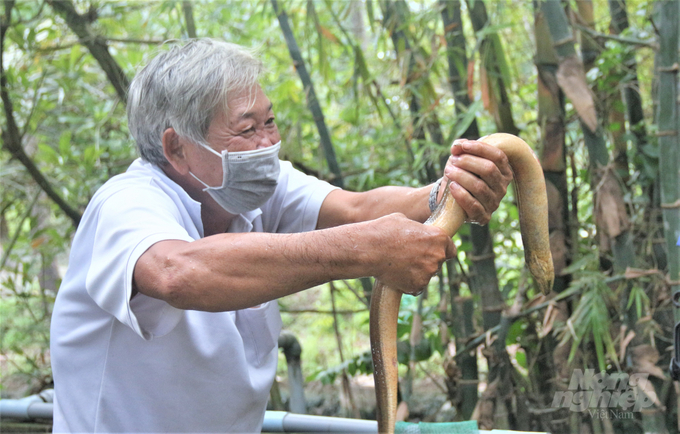
By the end of July 2022, outstanding loans for agriculture and rural areas reached more than VND 2.83 million billion, accounting for 1.4% of outstanding loans for the entire economy. Photo: Pham Hieu.
Specifically, between the years 2022 and 2023, the State Bank is implementing Decree 31/2022/ND-CP, which supports a 2% interest rate on loans to enterprises, cooperatives, and household businesses from the state budget.
In addition, the State Bank has urged credit institutions to continue simplifying capital lending procedures, publishing them openly at branches and transaction offices, and expanding unsecured lending by improving the efficiency of client evaluation and credit rating.
Mr. Nguyen Xuan Bac predicted that the outstanding loans for agricultural and rural areas will reach over VND 2,83 trillion by the end of July 2022, representing for 1.4% of the total outstanding loans for the whole economy.
In addition to financial concerns, deficiencies in agricultural land and land funds hamper the professionalization of farmers. Ms. Tran Thi Thanh Thoan (Moc Nam commune, Duy Tien district, Ha Nam province) stated that the quick and robust pace of industrialization and urbanization in certain regions has led to a decrease in farmland and insufficiency of land for agricultural production.
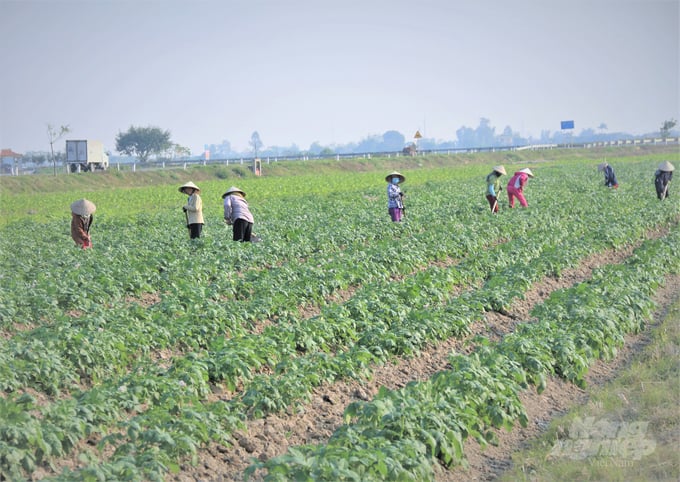
The land fund for agricultural production is increasingly shrinking. Photo: Pham Hieu.
"I am now building a model for dairy farming and milk processing. In order to enlarge the dairy herd, I'm looking forward to renting or subcontracting inefficient rice fields, as agricultural land tends to be abandoned in some regions in order to cultivate sustainable raw materials. Renting and borrowing land still faces several obstacles due to the absence of norms and a legal foundation.", said Ms. Tran Thi Thanh Thoan.
Regarding farm-land fund, Mr. Mai Van Phan, Deputy Director of the General Department of Land Management (Ministry of Natural Resources and Environment), stated that during the compilation and amendment of the Vietnam Land Law, the Ministry of Natural Resources and Environment has always prioritized retaining as much land as possible for agricultural and forestry production.
Regarding the problem of land concentration for production materials, Mr. Phan stated that the transfer rate in the present version of the amended Draft Land Law is capped at 15 times, as compared to 10 times in the past. Simultaneously, enhance the capital contribution mechanism with land use rights and encourage individuals and households to join forces to expand the extent of agricultural producing land.
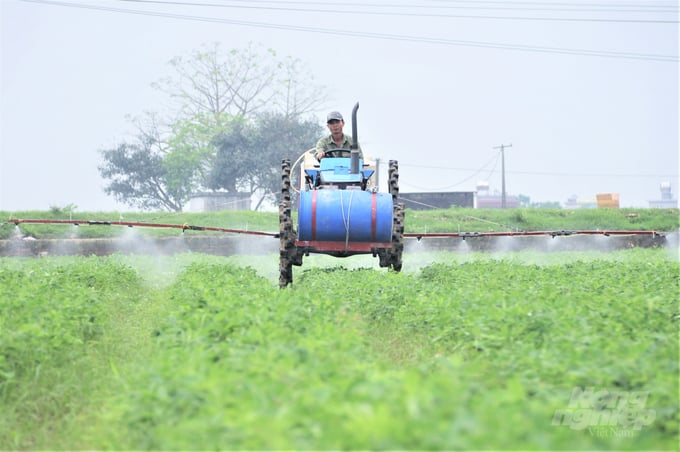
In the process of editing and amending the Vietnam Land Law, the Ministry of Natural Resources and Environment always focuses on retaining as much land as possible to serve agro-forestry production. Photo: Pham Hieu.
The next step is to expand the recipients of the transfer without restricting economic organizations, households, and individuals who are not directly involved in agricultural production from receiving the transfer of rice land. This is in accordance with Resolution 18-NQ/TW on expanding the receivers of agricultural land use right transfers.
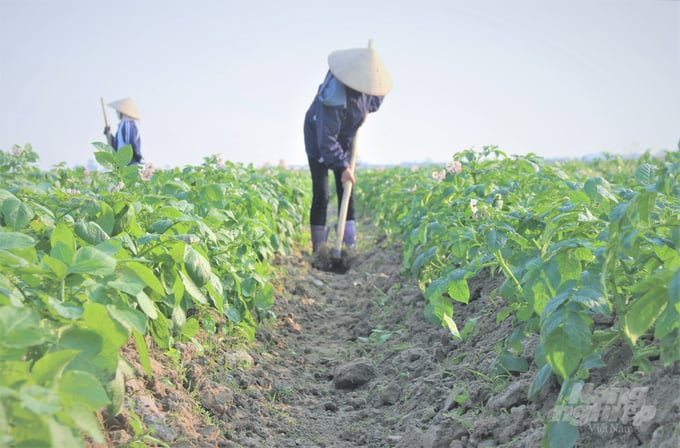
Currently, in the revised Draft Land Law, the transfer rate is is capped at 15 times, as compared to 10 times in the past. Photo: Pham Hieu.
Mr. Mai Van Phan concluded that farmers may adjust the structure of crops and livestock with total flexibility, thereby increasing the efficiency of agricultural land usage in accordance with the plan.
"Currently, 10.2 million out of about 16.8 million households using land are farmers. 27 million hectares out of 33 million hectares of land are agricultural and forest land, accounting for 84% of the natural land fund", informed Mr. Mai Van Phan, underlining that the proportion of land used for agriculture and forestry is large, according to statistical analysis.
Translated by Linh Linh

(VAN) The decree on Extended Producer Responsibility (EPR) ensures transparent management and disbursement of support funds, avoiding the creation of a “give-and-take” mechanism.

(VAN) Hue City rigorously enforces regulations regarding marine fishing and resource exploitation, with a particular emphasis on the monitoring of fishing vessels to prevent illegal, unreported, and unregulated (IUU) fishing.

(VAN) Hanoi People's Committee has issued a plan on reducing greenhouse gas emissions in the waste management sector with 2030 vision.

(VAN) Vietnam's draft amendment to Decree No. 156 proposes a mechanism for medicinal herb farming under forest canopies, linking economic development to population retention and the sustainable protection and development of forests.

(VAN) In reality, many craft village models combined with tourism in Son La have proven effective, bringing significant economic benefits to rural communities.

(VAN) The international conference titled Carbon Market: International experiences and recommendations for Vietnam was successfully held recently in Ho Chi Minh City.

(VAN) According to the Project on rearranging provincial and communal administrative units, in 2025, the country will have 34 provinces/cities, 3,321 communes, wards, and special zones, and no district-level organization.